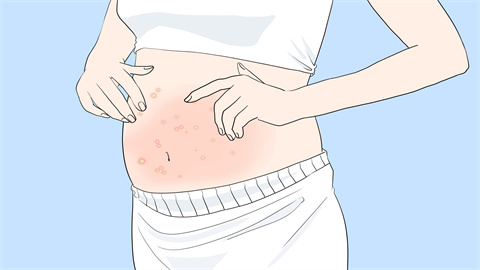Why does my lower leg hurt when walking after experiencing leg cramps during pregnancy?
Generally, leg cramps during pregnancy followed by calf pain when walking may be caused by muscle fatigue and spasm, cold exposure, hypocalcemia, lower extremity varicose veins, lumbar disc herniation, and other factors. Depending on the specific situation, improvements can be achieved through general treatments, medications, or surgical interventions. Detailed analysis is as follows:

1. Muscle Fatigue and Spasm
During pregnancy, increased body weight places greater load on the calf muscles while walking, leading to muscle spasms. After a spasm, muscle tissue may become damaged, causing pain during movement. Reduce walking, rest appropriately, and apply heat therapy and massage to the calves to relieve muscle tension.
2. Cold Exposure
Inadequate warmth for the calves allows cold to stimulate blood vessel constriction in the muscles, triggering cramps. Following spasms, muscles may become congested and swollen, resulting in pain when walking. Add clothing promptly, soak feet in warm water, and avoid further cold exposure to the lower legs.
3. Hypocalcemia
Increased calcium demands during pregnancy combined with insufficient dietary intake can elevate neuromuscular excitability, leading to cramping. Muscle damage after cramping may cause pain during walking. Under medical guidance, supplements such as calcium carbonate D3 tablets, calcium gluconate tablets, or calcium lactate tablets may be taken. Also increase consumption of calcium-rich foods.
4. Lower Extremity Varicose Veins
Pregnancy-related blood vessel dilation and impaired venous return can lead to blood pooling in the calves, causing cramps and pain when walking. Avoid prolonged standing or sitting, elevate the legs periodically, wear medical compression stockings, and in severe cases, undergo surgical procedures such as high ligation and stripping of the great saphenous vein.
5. Lumbar Disc Herniation
Compression of spinal nerve roots due to lumbar disc herniation can cause numbness and cramping in the calf. Muscle injury following spasms may worsen pain during walking. Under medical supervision, medications such as mecobalamin tablets, vitamin B1 tablets, or ibuprofen sustained-release capsules may be used. In severe cases, surgical removal of the herniated disc material (discectomy) may be required.
Pregnant women should reasonably schedule physical activities to avoid overexertion; ensure proper warmth for the calves and maintain a balanced diet to meet nutritional needs. If persistent pain or numbness occurs, seek timely medical evaluation to prevent disease progression.









